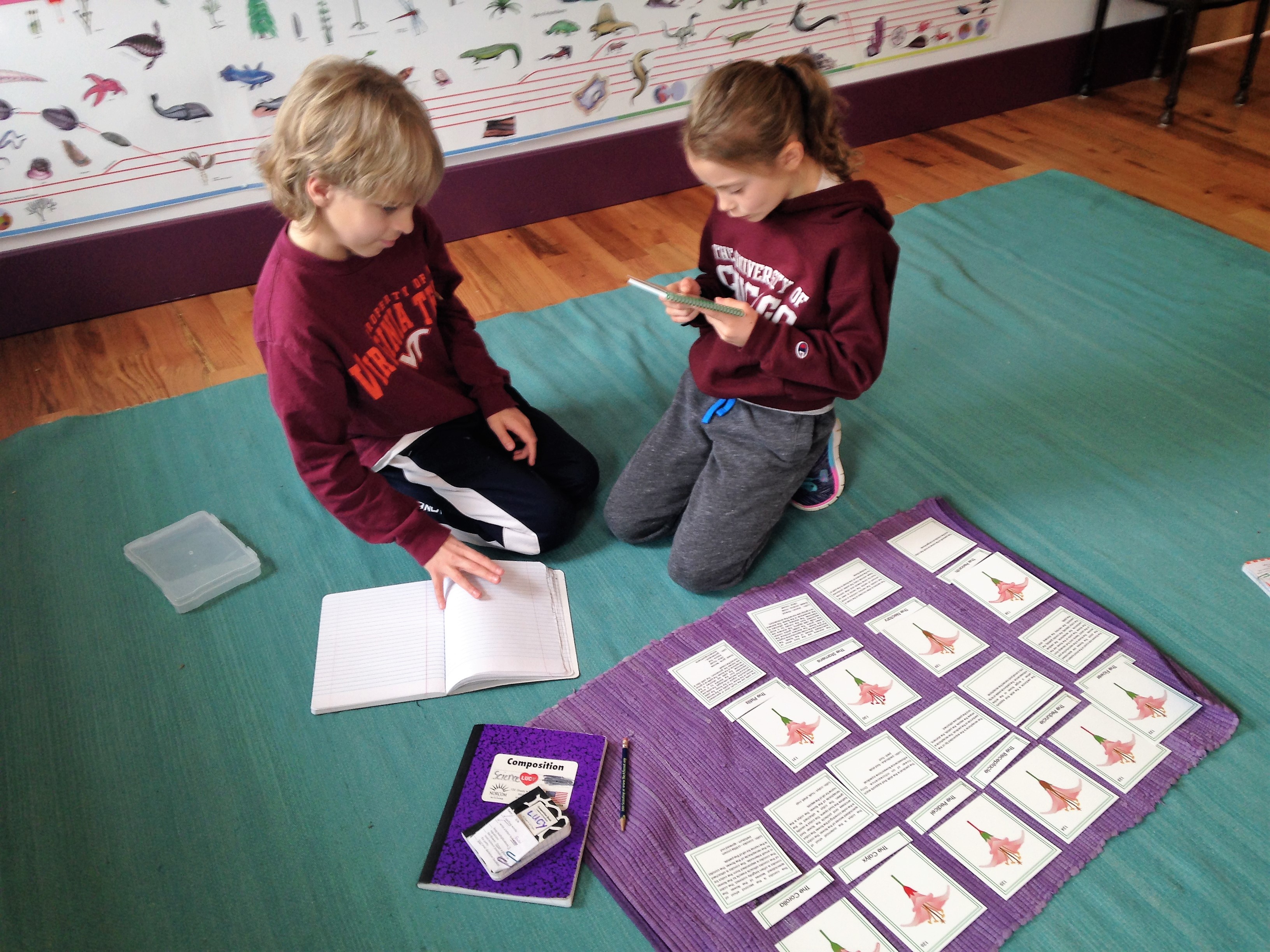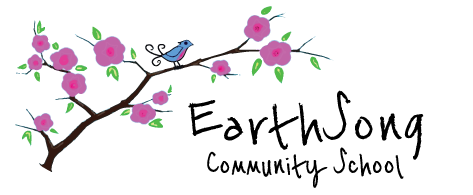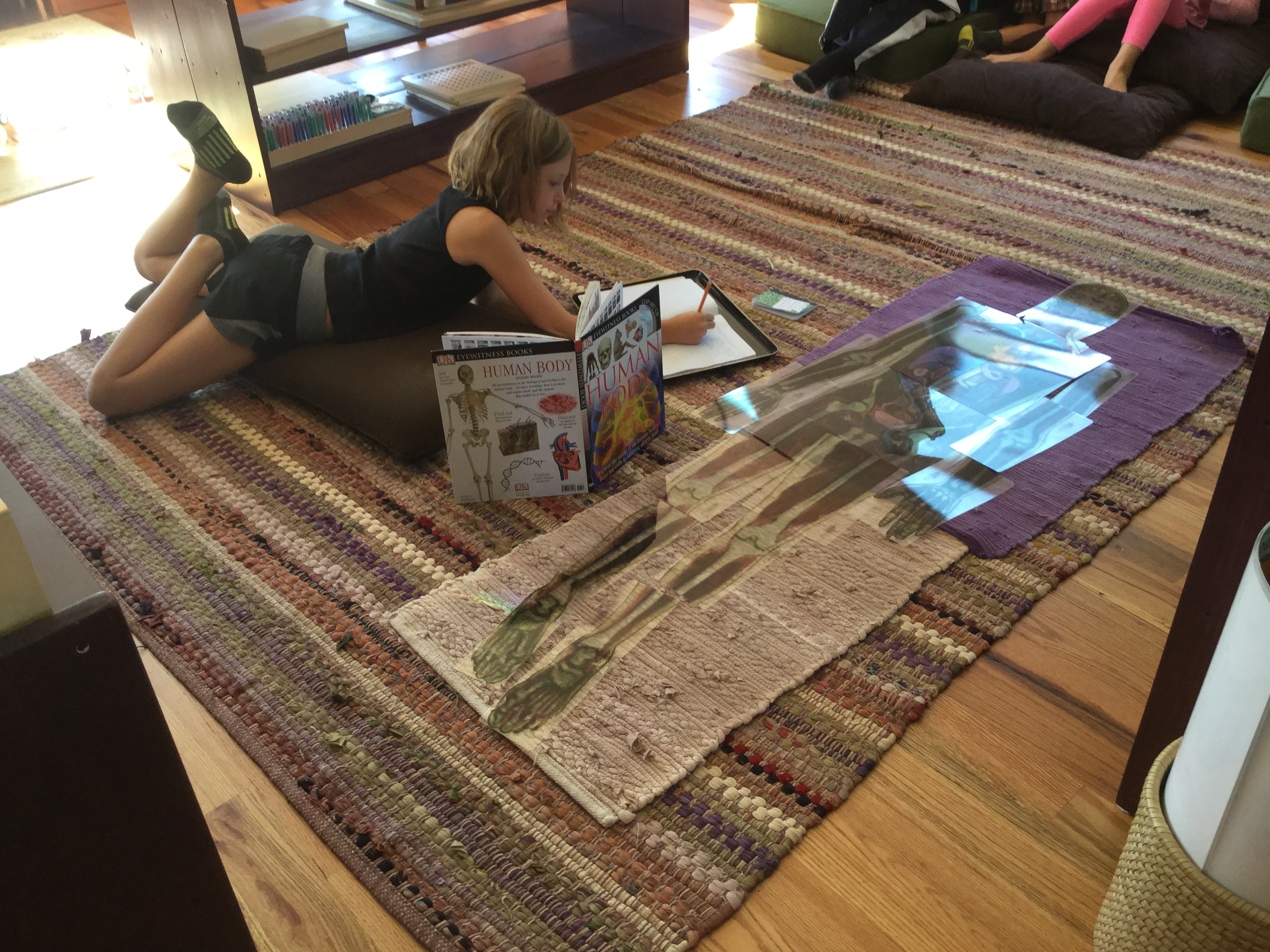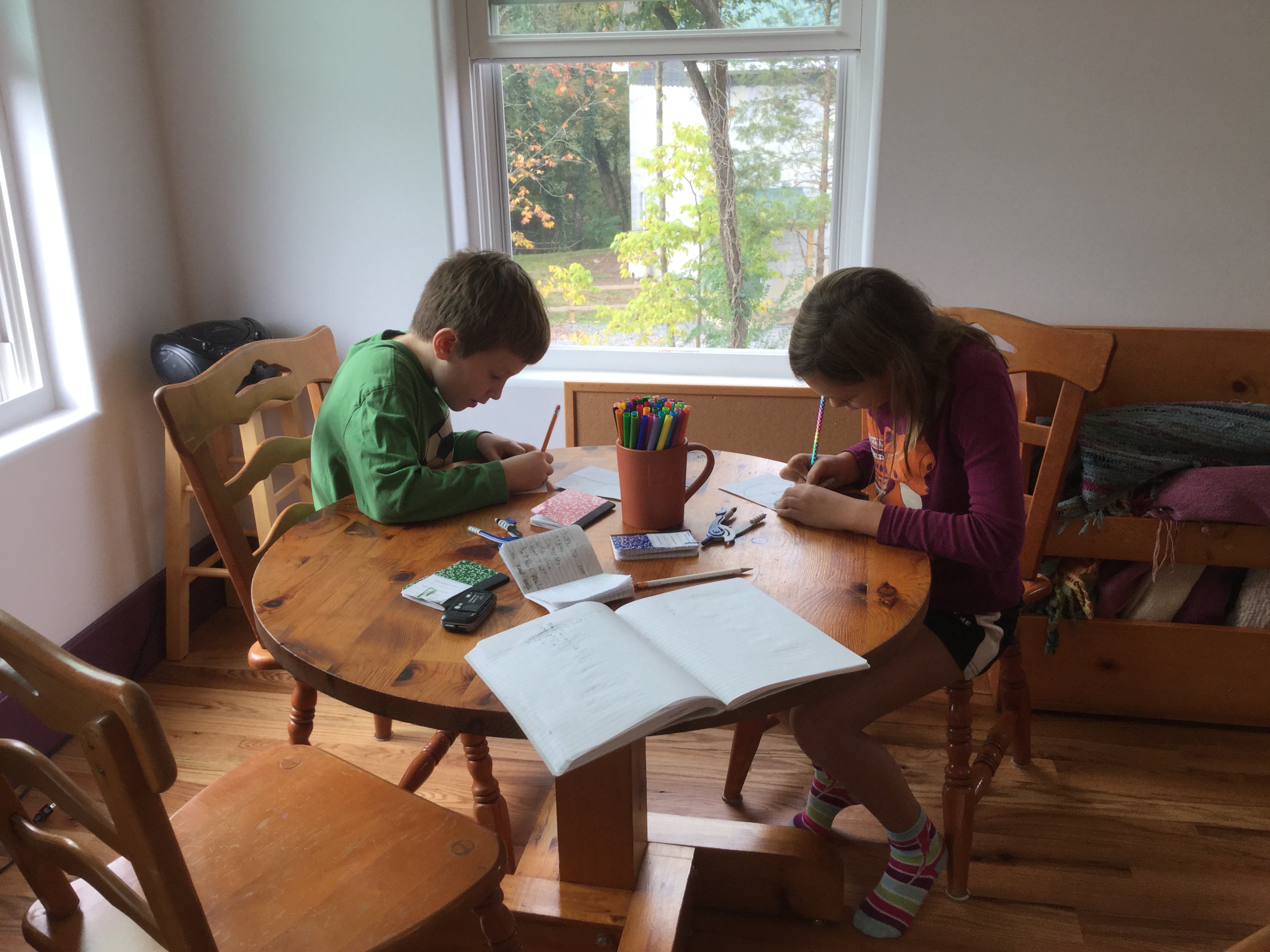
Children between the ages of 6 and 12 are in a sensitive period for social development. It is at this stage of life that Montessori believes children begin to question not just the “whats” of the world around them but the “whys” and “hows”. In addition to inspiring academic exploration, these questions lead the child to question the nature of the universe and their role within it.
The Elementary curriculum is built around Montessori’s ‘Five Great Lessons’. These lessons introduce the students to the interconnectedness of everything and serve as the stories that ignite curiosity and investigation of the major curriculum areas. They include stories of the birth of the universe, the evolution of life on Earth, the coming of humans, and the uniquely human contributions of language and math.
In covering the birth of the universe students are introduced to the study of chemistry, matter, energy and physics. Through their work with the hands on materials and basic experiments that are available in the classroom students gain knowledge based on experience as they explore these basic building blocks of science.
As we explore the evolution of life the students learn about zoology and botany, evolution and adaptation, biomes and Earth science, and the interconnectedness of all creation. They learn how the planet accommodates life, how to classify and categorize living things, how the food chain sustains life, and the role of all living things in the web of life.
We focus on the history of humans as they have adapted to a changing world. Through a focus on how we have met our basic needs across time the students explore the culture, history, and influence of human civilization across the ages. Our exploration of social, economic, and political issues are woven together into a single thread as we work to understand the big picture of the march of history rather than the unique details of specific historical events. We include the history of language and math to instill an appreciation of how our understandings and capabilities have evolved over time and how important these two skills are to humankind’s role in the web of life.
The ‘Five Great Lessons’ provide a framework and grounding for the students as they go on to learn about the things that are of unique interest to them. Each lesson has a project designed to go along with it. Students choose a topic related to the Great Lesson, engage in the work, and then demonstrate what they have learned by teaching it back to the class. They can write research papers, prepare visual aids, or design a creative presentation to share the information. As they prepare to share their knowledge they have the opportunity to develop their time management, public speaking, and organizational skills. Underlying all of their work is a focus on developing the literacy, critical thinking, problem solving, and organizational skills they will need to go on to be successful in any learning environment.
In addition to our academic focus the Elementary Program nurtures each student’s growth as a member of a community. Within the classroom special emphasis is placed on fostering the values of empathy, kindness and inclusion. Students are supported as they practice the Golden Rule and develop the social skills to resolve their differences in ways that are respectful and peaceful. We also reach out beyond ourselves and engage in acts of community service ranging from regular visits to the various assisted living facilities in the areas to singing at the community table that provides meals to low income members of the Lexington community. By providing the opportunity for our students to see first- hand the difference their service can have, we hope they will go on to be active members of every community they join.
Like the Primary Program, our Elementary Program is designed to nurture a sense of self- worth and love of learning that will last a lifetime. By giving children the freedom to learn about the things that are interesting and meaningful to them, while at the same time developing the literacy, math, critical thinking, problem solving and organizational skills they will need to succeed, learning becomes engaging and fun because it is relevant. Our goal is to prepare our students to be successful learners and welcomed community members throughout their lifetime.


